|
1177 B.C.: The Year Civilization Collapsed
By Eric H. Cline Published in September 2015 264 Pages Thibault’s Score: 5/5 1177 BC, despite the potentially “clickbaitish” title, is an excellent book. The book covers the history of the bronze age collapse. The century from roughly 1250 BC until 1150 BC is marked by the fall of the hyper-authoritarian palace states that appeared around the Eastern Medeterrainian. The date of 1177 BC was chosen somewhat arbitrarily as the date of the bronze age collapse, but the book covers the broader period. Cline begins by painting a picture of the rich cultures and civilizations of the Eastern Medeterarian on the eve of the collapse. He then proceeds to systematically cover the events of the collapse, culminating with an overview of the ensuing dark ages. The causes of the bronze age collapse are not well understood. It is known that several devastating earthquakes trembled the region, and that mysterious “sea peoples” raided the coastline. Other factors such as climate change, revolutions, and technological change may have also played a part. What I really enjoyed about this book was that Cline walks the fine line between explaining the historiography as well as telling an entertaining story. Many history books, such as those by Harold Lamb, tell a story without reference to the evidence and sources to the point of making me cringe. Others go into pure historiographical minutia without telling any stories or capturing the key points of interest in an era. Cline does a great job at telling a story while keeping the historiography in mind. He is constantly telling us about archeological findings, inscriptions, and different primary sources. Overall, this has to be one of the best written historical books I have ever reviewed.
1 Comment
Against the Grain: A Deep History of the Earliest States
By James Scott Published in August 2017 317 Pages Thibault’s Score: 4/5 Against the Grain is another brilliant book written by the always excellent James Scott. Against the Grain is a popular history written to survey and summarize the academic literature explaining the rise of the state. Scott also advances a number of more controversial points, likely informed by his anarchist background. The main thesis made in Against the Grain is that the early states arose when small scale “guerilla” farmers were coerced into city states. He points out that hunter-gatherers had more free time, more food, and healthier lives than their compatriots living in cities. He concludes that the only reason why a small scale farmer or hunter-gatherer would adopt the lifestyle of a sedentary farmer is due to coercion. Based on these assumptions, Scott also concludes that the periodic collapses of the early palace states actually often resulted in better living conditions for the masses. He concludes that the collapses must have been non-violent and that the ensuing “dark ages” were actually much freer and more prosperous. Most controversially, this line of reasoning also leads him to condemn state-building technologies such as writing. Due to my lack of historical knowledge of the period, I have no means by which to access Scott’s claims. On one hand, it seems plausible that hunter-gatherers were coerced into states and that the people on whose backs the states were built suffered. On the other hand, Scott’s condemnation of writing and technology seems dubious. I simply do not know what to make of Scott’s arguments. Either way, I strongly recommend this book to anyone interested in learning more about the origins of the state. The Alchemy of Finance
By George Soros Published in 1987 391 Pages Thibault’s Score: 2/5 I initially picked up this book because I was interested in hearing what the much reviled George Soros had to say about finance. That being said, The Alchemy of Finance was a huge disappointment. I neither got insight into any of the conspiracy theories surrounding George Soros nor did I get much value out of reading the book. Soros opens up his treatise by explaining that he had set out to apply his philosophical ideas to finance. He explains his affinity for the scientific method and for thinkers like Karl Popper. He also makes a fascinating point: because financial markets have profit and loss, they can be used as an arena to test the objectivity of various theories. The rest of the book is a lengthy explanation of Soros’ theory of reflexivity. Simply put, a reflexive system is one where the participants are both influenced by and influence the system. Reflexivity as it applies to financial markets has many practical implications. For example, rising paper stock prices may bring real business benefits to a corporation. Suppliers might see the rising prices, and offer the corporation better deals. Customers might be attracted to the firm due to the stock price. This could cause a virtuous cycle. The style of writing is incredibly boring and difficult to understand. It reminds me of the semi-autistic libertarian treatises on economics that I used to read. I didn’t get many insights from this book, and do not recommend it. Equality: The Impossible Quest
By Martin van Creveld Published in March 2015 293 Pages Thibault’s Score: 2/5 I’ve had this book lying around in my audiobook library for a few years, so I decided to finally take a crack at it. All I can say is that it was very disappointing. The first few chapters of the book made me optimistic: the book is branded as a cursory overview of how ideas of egalitarianism evolved throughout the ages. The topic seemed fascinating, and Martin van Creveld has written several other books which I’ve really liked. However, I found that the quality of the historiography was very poor. He makes broad statements such as “no non-Western civilizations have ever come up with egalitarian ideals” which are blatantly untrue. His story jumps from tribal societies, to the ancient Greeks, straight to the Enlightenment and modern era. He entirely skips the many egalitarian experiments of the Middle Ages, notably ignoring the fiercely egalitarian Islamic societies of the era. The book is structured in the following way: van Creveld gives a historical example, shares a few hot takes, and moves to the next example. Part of the issue might be that writing good survey histories can be extremely difficult, especially if they are relatively short. One book that did this quite well was “Against the Gods” a survey history of statistics. Overall, I found this book to be very disappointing. It is clever enough to mislead someone with a cursory understanding of history, and too shallow to please someone with any deep knowledge. Lost Enlightenment: Central Asia's Golden Age from the Arab Conquest to Tamerlane
By S. Frederick Starr Published in June 2015 680 Pages Thibault’s Score: 5/5 Lost Enlightenment is the single best history book that I’ve read in 2020. It was the perfect conclusion for all three major topics that I studied this year: the Islamic Golden Age, the crusades, and the Mongol empire. Lost Enlightenment tells the story of how extremely technologically advanced societies existed in Central Asia from the conquests of Alexander the Great (312 BC) until the reign of Tamerlane (1405 AD). The Central Asian region of Transoxiana has been conquered by many empires: Persia, Alexander the Great’s Greek Empire, China, Kushan Indians, Muslims, and many more. Despite these conquests, Central Asian culture became known for its ability to produce many prominent intellectuals. The intellectual ascent of Transoxiana was most prominent from the rise of the Abbasid Caliphate (approx 800 AD) until the Seljuk Conquest (1080 AD). This roughly 300 year long period sees a golden age of Islamic thought, science, and philosophy. Muslim Transoxianian thinkers dominated the Islamic golden age. Avicenna (or Ibn Sina) who lived from 980 AD until 1037 AD was a staunch Aristotelian and is likely the most famous. However, the thinker who fascinated me the most was al-Biruni. Biruni was an early proponent of natural selection, anticipating Darwin by 800 years. He also was a great historian. He would eventually move to India, where he would write about the ways Hindu religion compared and contrasted to Islam. His hobbies included geology, astronomy, physics, optics, and math. Eventually, the Islamic golden age came to an end. First, Turkish regimes came to power and promoted extreme forms of Islam that stiffled out any free speech. Then, the Mongol conquests physically destroyed most major cities. Finally, tyrants like Tamerlane committed acts of genocide that would snuff out what little room for free thought was left. This is the best book that I have read about the Islamic Golden age. I recommend it to everyone, regardless of their historical interests. A fascinating, albeit somewhat lengthy, book that should be considered a key part of anyone’s historical education. |
Thibault SerletMost of my articles are book reviews, but I also write about many other topics. Archives
December 2023
Categories |
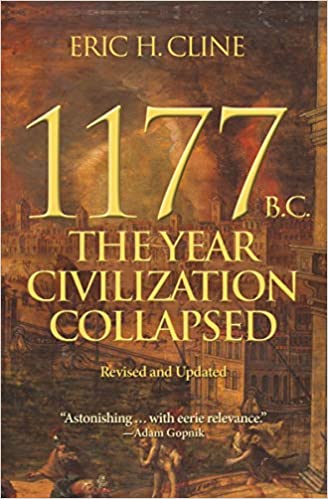
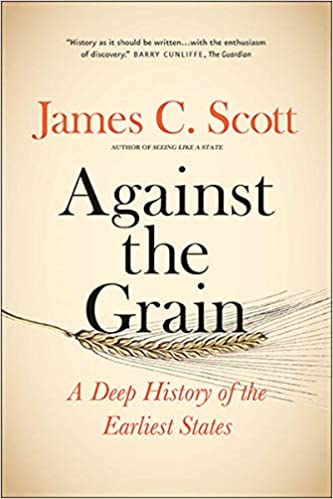
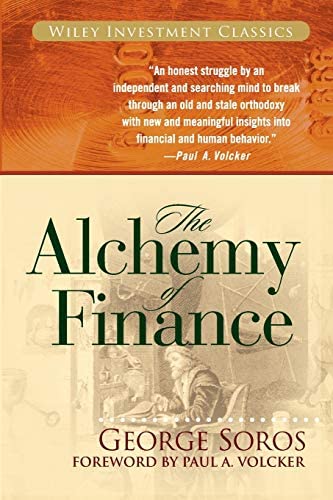
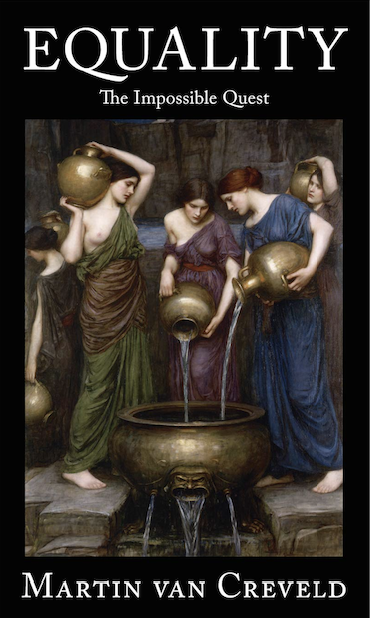
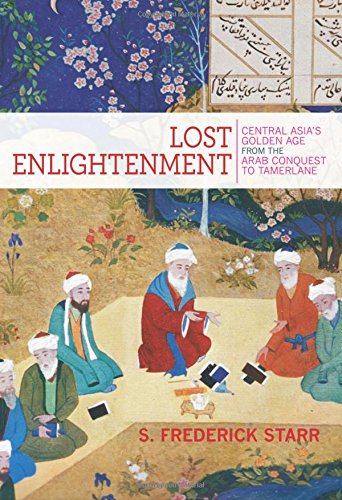
 RSS Feed
RSS Feed